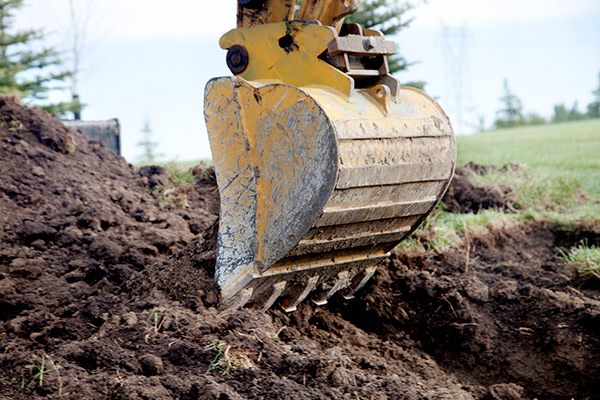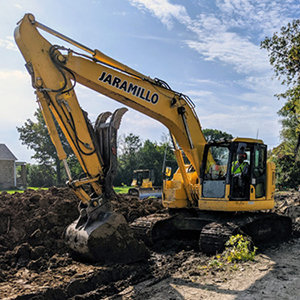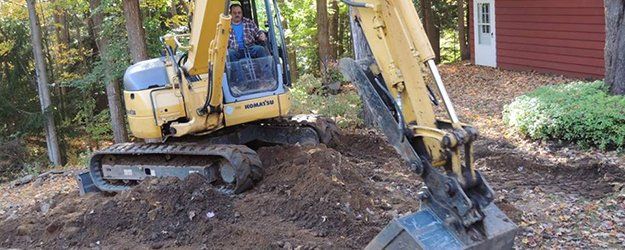Comprehensive Excavation Approaches: Mastering the Basics for Success
In the realm of building and construction and civil engineering, the relevance of efficient excavation methods can not be overemphasized. The mindful preparation, exact execution, and careful focus to information required in excavation jobs require a comprehensive method that incorporates various basic elements. From first dirt evaluation to the implementation of safety and security steps and normal progression surveillance, grasping these core aspects is vital for achieving success in any excavation undertaking. Nevertheless, the real proficiency exists not merely in comprehending these basics however in effortlessly incorporating them to browse the intricacies of excavation tasks with skill.
Comprehending Excavation Job Preparation

Effective excavation tasks are improved the foundation of precise and detailed preparation. The preliminary stage of any type of excavation job is the drawing board, where crucial decisions are made that can dramatically affect the end result of the task. Throughout this phase, it is necessary to collect all relevant info concerning the website, including topographical studies, soil structure, and any kind of prospective threats that may exist. Understanding the job budget, range, and timeline restraints is crucial for developing an extensive excavation strategy that guarantees the task's success.
One key facet of excavation project preparation is the advancement of a detailed timeline that describes the series of deadlines, tasks, and landmarks. This timeline acts as a roadmap for the job team, allowing them to track progress and make necessary adjustments to ensure the project remains on timetable. In addition, a distinct budget plan that represents all costs, including devices leasing, labor prices, and products, is crucial for avoiding expense overruns and delays. By meticulously taking into consideration all these variables throughout the drawing board, excavation tasks can be executed efficiently and efficiently, resulting in successful end results.
Dirt Evaluation and Site Examination
Performing extensive dirt analysis and site examination is a crucial action in the prep work phase of any type of excavation task. Soil analysis entails determining the structure, framework, and homes of the dirt at the excavation website. This details is essential for recognizing the dirt's bearing capacity, moisture material, and capacity for disintegration, which are key consider determining the excavation techniques and devices required for the task.
Website evaluation goes past dirt analysis and includes a wider evaluation of the total website problems. This assessment includes identifying any prospective threats, such as underground utilities, environmental concerns, or unstable terrain, that might influence the excavation procedure. By thoroughly evaluating the site, project managers can create effective excavation methods that prioritize security, effectiveness, and ecological defense.
Utilizing innovative innovations like ground-penetrating radar, dirt tasting, and drone studies can boost the precision and effectiveness of soil analysis and website evaluation. Spending time and sources in these preliminary steps can eventually save time and avoid expensive hold-ups or issues throughout the excavation procedure.
Tools Option and Application
Efficient excavation projects depend heavily on critical devices choice and use to make certain optimum performance and performance. Selecting the right equipment for the task is important in optimizing efficiency and reducing downtime. Elements such as the sort of dirt, depth of excavation, and project extent play a considerable function in determining the most ideal tools for the task at hand.

Along with picking the suitable devices, correct usage is crucial to task success. Operators has to be trained to handle the devices safely and successfully - dump truck companies in ohio. Routine maintenance checks and timely repairs help protect against breakdowns and make sure consistent performance throughout the job
Safety Steps and Rules Compliance
In the world of excavation tasks, prioritizing precaution and compliance with laws is critical to making certain a lawfully audio and safe functional setting. Security measures encompass a variety of practices, including performing extensive website evaluations, carrying out appropriate signage and barriers, and providing ample great post to read security training for all personnel associated with the excavation procedure. Adherence to guidelines, such as Discover More Here OSHA needs in the USA, makes sure that the excavation project meets the essential standards to protect employees, bystanders, and the surrounding setting.

Surveillance Progress and Adjusting Methods
Exactly how can predict managers properly track the development of excavation projects and adapt their strategies as necessary to optimize results? Surveillance development is essential for making sure that excavation projects stay on track and fulfill due dates.

Verdict
To conclude, grasping the basics of detailed excavation approaches is essential for the success of any kind of project. By understanding project preparation, assessing dirt and website conditions, selecting appropriate devices, following click this security guidelines, and keeping track of development, project managers can guarantee a smooth and effective excavation procedure. Carrying out these techniques will certainly result in successful end results and lessen potential dangers or troubles throughout the excavation job.
The initial phase of any excavation job is the planning phase, where vital decisions are made that can substantially impact the result of the job. Recognizing the task extent, timeline, and spending plan constraints is critical for producing a detailed excavation strategy that ensures the job's success.
Just how can predict managers efficiently track the innovation of excavation tasks and adapt their techniques appropriately to enhance end results? By very closely monitoring progress and being prepared to adapt methods, job supervisors can boost the overall success of excavation projects.
By understanding project planning, evaluating soil and website conditions, choosing appropriate devices, conforming with safety and security laws, and monitoring progress, task supervisors can make certain a smooth and efficient excavation process.